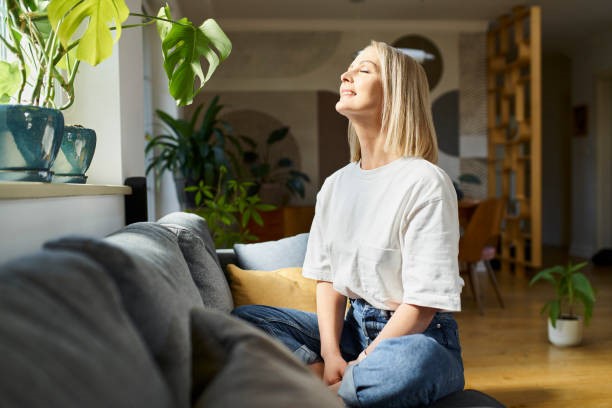How Does Taking Care of Oneself Attribute to Mental Wellness
Positivity about oneself can improve one’s attitude. Whether it’s from a well-groomed hairdo, beautiful skin from good skincare, or a...

Positivity about oneself can improve one’s attitude. Whether it’s from a well-groomed hairdo, beautiful skin from good skincare, or a soothing massage home service, feeling good about oneself can improve one’s mood and outlook. Beauty and mental health have a subtle but significant relationship. It extends beyond outward appearances since this relationship requires self-care, identity expression, and the development of emotional resilience.
Beauty as an Act of Self-Care
Let’s be honest, life gets hectic. Routines become disorganized, tension begins to wear thin, and deadlines mount. Your favorite lip balm can be an act of self-care in this turbulent period. A face hydration-replenishing or a lip balm application can be a soothing treatment for oneself throughout the madness. These are just a few non-beauty practices that have positive effects on self-love. Grooming yourself to put your best foot forward is a way of saying to the world that you are important. That message has actual psychological weight, even if it is not spoken.
Simple self-care can be as simple as a five-minute morning ritual that leaves you feeling rejuvenated and prepared to take on the day. And these modest actions add up to a more happy, healthy outlook over time.
How Feeling Good Is Assisted by Appearance
Individuals’ posture often changes when they are satisfied with their appearance. They may smile more, stand taller, and face challenges with greater confidence. This suggests that physical attractiveness can enhance self-worth and social openness.
In many respects, our confidence is linked to beauty. Furthermore, confidence is about feeling in control and at ease in your own flesh, not about having a flawless appearance. More positive interactions result from feeling that your look matches who you are on the inside, which in turn strengthens your sense of wellbeing.
Beauty Routines Offer Emotional Support
A lot of the time, beauty turns into treatment. Getting your nails done, thoroughly washing your face, or getting a fresh haircut can provide relaxation, self-care, and a mood boost. These are routines that provide mental relaxation, not merely indulgences.
People frequently turn to these routines for solace, particularly in trying moments like sorrow, stress, or worry. They offer a sense of normalcy and control when everything else feels unpredictable. It’s no wonder so many therapists advocate for self-care habits as a part of emotional healing.
Expressing Identity through Appearance
The indication of beauty is that we are able to show ourselves. Our clothing, makeup and grooming things are just means to express our character or our will. We can feel that this is a way to empowerment. A shift in one’s appearance can allow somebody getting over major changes in life to take their personality back. A new haircut or bright lipstick is a gesture that can be related to the process of the transformation, a way of saying, ‘I am present and I am rediscovering myself.’
Shifting Towards More Inclusive Beauty Standards
Thankfully, the beauty industry is evolving. Today, however, businesses and advertising efforts feature genuine people of diverse identities, ages, body types, and skin tones. The overall public’s mental health has improved as a result of this shift, particularly for those who have ever felt completely underrepresented. It affirms their existence when individuals see someone similar to them on a magazine cover or in a beauty advertisement. “You too are beautiful,” it tells them. There are repercussions from such a type of portrayal. It encourages a culture of acceptance rather than rivalry, lowers comparison, and increases self-esteem.
Creating a Healthy Relationship with Beauty
To truly benefit from the beauty-mental health connection, start by shifting your mindset. Think of beauty as something you do for yourself, not to impress others. Practice gratitude for your body and all that it does for you. Like you would a friend, give yourself a compliment. Be in the company of individuals who truly value you for who you are, without regard to appearances. The same way you would with a close friend, acknowledge and appreciate your own special assets, abilities, and favorable traits. Develop connections with people who notice more than just your outward appearance; they should perceive the whole range and depth of your character.
Conclusion
At its finest, beauty is about presence rather than merely goods or fashions. It all comes down to taking care of yourself every day, in both big and small ways. By taking care of your appearance, you are also taking care of your emotions. And there is genuine, potent healing in that. So go ahead and do your skincare intentionally, wear the color that makes you feel brave, or style your hair in a way that makes you happy. Because beauty becomes a bridge to improved mental health-and a more self-assured, contented you-when it originates from a place of love and sincerity.





